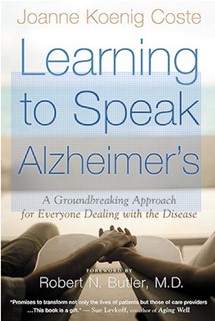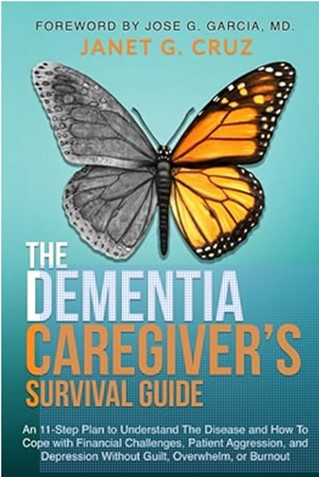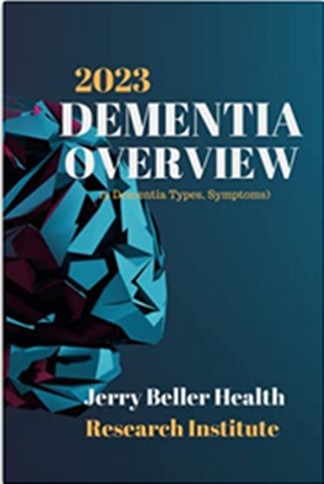
Today we will reflect on the problem some of us may face, What will happen when we call the police to do a wellness check on a neighbor who possibly is suffering from dementia?
My perspective is from the perspective of a volunteer officer of an over-55 condominium association. Indeed, determining whether a resident is simply being difficult or whether they are in the early stages of dementia can be difficult.
One warning sign of dementia is the elderly can no longer handle their financial affairs. If someone who has been paying their bills, including condominium maintenance fees, for decades is suddenly delinquent, could that be a warning sign for dementia?
Another warning sign is puzzling and/or abusive behavior, or sexually inappropriate behavior. Often, the demented are combative through frustration, or literally because they lose the presence of mind to fix their meals when they should, or go to the doctor, and they may have urinary tract problems.
Can we blame those suffering from dementia for their demented behavior? Are those suffering from dementia responsible for their actions?
What training do the police undergo to deal with citizens with mental health issues, including dementia?
YouTube Script with Book Links:
https://www.slideshare.net/BruceStrom1/wellness-checks-for-dementia-police-and-mental-illness
YouTube video for this blog: https://youtu.be/z_SlPLARCxU
TREATING THOSE WITH DEMENTIA WITH COMPASSION
Who should you call for wellness checks? We were reluctant, at first, to ask the police perform these wellness checks. We wondered, Do the police have the training necessary to take the place of social workers when performing these wellness checks?
We live in Florida, and the social welfare agencies just do not have the staff to perform these wellness checks, and other professionals are reluctant to do them for liability reasons, and because they are also busy. So, we have no choice but to rely on the police to perform wellness checks. Unfortunately, the police may not want to share what they learn because of HIPAA, or the health-care privacy regulations.
The good news is that to be accredited, police departments need to provide a week of Crisis Intervention Training, or CIT, on mental health issues to their police, with continuing education. In Florida, our state, all but four rural Florida counties provide this training for their local police. Many of the mental health issues the police encounter overlap with drug abuse problems.
The bad news is that this mental health training is geared toward the younger and middle-aged offenders, police receive little training on dealing with the elderly who suffer from dementia.
HOW DO YOU RESPOND TO NEIGHBORS SUFFERING FROM DEMENTIA?
How does dementia differ from other forms of mental illness? One difference is that no matter what you do, the elderly suffering from dementia will not substantially improve, they will only get worse. Of course, if you ensure they have enough to eat and drink, and have the necessary medical care, that will help.
I joke with the members of my over-55 community that if one of our elderly neighbors is ornery, that we should be patient with them, as they may suffering from dementia, and we do not know it. This is literally true. While you can often sense if someone is autistic, or has a drug problem, or is schizophrenic, often you cannot tell if someone is in the early stages of dementia.
When you suspect that a neighbor could be suffering from dementia and needs help, who do you call? This could include the elderly who have fallen behind in their bills or are behaving inappropriately.
Most important, call their family or loved ones. This is critical, especially if they are living alone. If the family are not involved in their life, then some alcoholic or homeless person could flatter them, move in, and take advantage of them. If they suspect intervention, they may drag the person suffering from dementia down to the courthouse and marry them. That could make them untouchable, so they can drain their assets at will.
Often their family members are aware of their condition and are trying to take care of them. In that case you can let them know what local resources are available, which would include the local Council of Aging, and in particular, the Alzheimer’s Association, which has an excellent twenty-four-hour hotline you can call for free assistance and advice.
We sometimes get pushback from board members when we suggest we need to keep in mind that our elderly who are behind in their bills, or are behaving inappropriately, might be suffering from dementia. Their objection: We are not an assisted living facility!
The problem is that the Almighty answered this question from Cain many millennia ago: Unfortunately, We are indeed our brother’s keeper.
There are common-sense responses to this concern:
- If someone is suddenly behind in their financial obligations, ask the police to perform a wellness check. If you inform them that foreclosure is a possibility, this will add urgency, and may give them the leverage needed to entice the social welfare agencies to get involved in the case.
- If a resident is harassing the staff or other residents, or acting inappropriately, including sexually inappropriate actions or remarks, ask the police to perform a wellness check. Emphasize you are as concerned with their welfare as you are concerned about their behavior.
- Share with their family what is happening, many condominium associations have emergency contact information in their files.
- This emergency contact information should be updated every decade or so.
- Inform your staff that if an elderly person is acting inappropriately, this could be due to early-stage dementia. The association should not hesitate to ask the police to perform a wellness check. This will also lessen staff turnover.
POLICE CRISIS INTERVENTION TRAINING PROGRAM FOR MENTAL ILLNESS
The Crisis Intervention Training (CIT) program was created in response to a tragedy that occurred in Memphis, Tennessee in 1987. The police responded to a call involving someone threatening to commit suicide. When the police ordered him to drop the knife, he charged the officers with the knife, who then shot and killed him.
In response to the community and media blowback, the Memphis Police Department consulted with the local chapter of the National Alliance on Mental Illness (NAMI) and two local universities to develop the Memphis Police Crisis Intervention Team and Training program, which has been adopted by police departments all over the country.[1]
In 2017, Steve Leifman, an associate administrative judge for the Eleventh Judicial Circuit in Miami-Dade County, was one of the authors of an article in the Atlantic magazine: How Mental-Health Training for Police Can Save Lives and Taxpayer Dollars, with the subheading, “But only if officials at all levels of government are willing to invest in it up front.” Judge Leifman has lobbied for a police training program in Miami-Dade, which has been in place for several decades, with dramatic results.
We cannot improve on his first few paragraphs:
“Every day seems to bring a new tragic story of a person with serious mental illness killed by police. In Seattle, for example, there were recently back-to-back deaths: a 30-year-old pregnant woman shot in front of her children, and a 20-year-old man killed right before his high-school graduation during what appeared to be his first psychotic episode, with a pen in his hand police mistook for a knife. Sometimes, the consequences are not death but violent confrontations, arrests, and incarceration: occurring only because of miscommunication, missed signals, and misunderstandings.”
“Most of these tragedies result from officers’ lack of training on how to deal with people with serious mental illnesses. Standard police training: to issue commands, and when they are not followed, to push harder and more aggressively. That may work in other circumstances but are exactly wrong for those with mental illnesses or developmental disorders.”
Another 2014 Atlantic article describes how the CIT program has been implemented in San Antonio. The article states that before this program, “police responded to mental-health emergencies the way they would to any other call: They used the tough guy command voice they’re taught to handle criminals. ‘Police are notorious for the A personality type. They walk into a situation. They gain control of it. It’s their call now. They’re in charge,’” said one officer. “More often than not, the officers ended up taking people with serious mental-health issues to jail.” “The other option was to take the person to a hospital emergency room. But in San Antonio, the police were waiting an average of a dozen hours in the hospital until the person could be triaged; that made jail seem more appealing.”
Judge Leifman noted, “Since 2010, fewer than two hundred deaths for mental health related calls to police, fatal shootings by police down nearly ninety percent.”
“What changed?” “A key component was the CIT training of over 5,400 police officers in Miami-Dade, representing all 36 police departments, using a 40-hour program crafted initially in Memphis, Tennessee, in the late 1980s. To be sure, it was not easy. First, many police officers believe they know what they are doing and don’t think they need additional training. Second, it was a battle to convince police chiefs to take their cops off the beat for a week to take the course.” Many police departments were not eager to adopt the CIT program, and Congress was not willing to push for its expansion nationwide.
Judge Leifman continues, “Finding treatment for people with these illnesses, including medical care and often a place to live, usually requires Medicaid. In Miami-Dade, the program has done so well that both the county and the conservative Florida legislature have appropriated funds to build a new comprehensive treatment center for the most acutely ill, who regularly recycle through both the criminal-justice and mental-health systems. Most states and counties have failed to invest in expanding the number of beds available to residents overall, much less invest in quality treatment facilities.”
In a follow-up article in 2022, Judge Leifman notes, “As a result, the makeup of our prison population tells its own tale: More than seventy percent of people in American jails and prisons have at least one diagnosed mental illness or substance-use disorder, or both. Up to a third of those incarcerated have serious mental illnesses, a much higher rate than is found at large. On any given day, approximately 380,000 people with mental illnesses are in jail or prison across the United States, and another 574,000 are under some form of correctional supervision.”
Judge Leifman continues, “The failures in services for people with mental illness and behavioral disorders associated with substance use have resulted in mass incarceration becoming the country’s de facto mental-health-care system. People with mental illnesses in the United States are ten times more likely to be incarcerated than they are to be hospitalized. Those who don’t end up in prison are likely to cycle repeatedly through patchy psychiatric care, spells of homelessness, and emergency rooms. And every year, about two million arrests are made of people with serious mental illnesses.”
In their participant’s guide, NAMI emphasizes that “Training is an important step, but the goal of CIT is not to train officers to be kinder and gentler as they take people to jail.
The goal of CIT is to keep people safe and that is not possible if jail is the only destination during a mental health crisis. A CIT program should help people get connected to treatment and services and offer hope for recovery.”
https://www.citinternational.org/
MIAMI-DADE DOCUMENTARY FILM ON POLICE AND MENTAL ILLNESS
In addition to implementing the Crisis Intervention Training program for its police officers, Miami-Dade has also instituted a Mental Health Court system. In their documentary film, they follow several cases as they progress through the system over a few years. Not all cases are successful, and they include one backsliding case where the defendant eventually graduated from the system. These cases also involved drug and alcohol addictions and community counselors, and helped the participants get on their feet and earn a living rather than be sentenced to jail terms.
The participants need to be accepted by the judges to participate in the Jail Diversion program, with supervised court-ordered counseling. At first, only misdemeanor offenders were accepted into the program, but as the county gained experience, now second and third-degree felony offenders can be accepted.
Some of the statistics mentioned in the film are:
- People with mental illness are nineteen times more likely to find a bed in jail than in a state civil hospital.
- The cost of incarcerating someone with mental illness is $31,000 a year.
- The cost to enroll someone in community mental health services is $10,000 per year.
- If trends continue, Florida will need to build ten prisons in ten years, costing $2.2 billion.
- Since the Jail Diversion project began, the number of arrests in Miami-Dade has fallen from 118,000 to 56,000 per year, saving the county twelve million dollars.
- Recidivism for felony and misdemeanor clients who complete the program has dropped from 80% to less than 25%
- Police shootings went down from two a month to sixteen over several years.
TRUTH ABOUT DEINSTUTIONALIZATION OF THE MENTALLY ILL
Another article in the Atlantic Magazine discusses the history of deinstitutionalization of the mentally ill, and mentions the Crisis Intervention Program, which in 2021 was implemented in over 2,500 police departments across the country. The article is skeptical how effective “a few hours” of training is in countering police attitudes, though I can attest that in my community most policemen are very aware of the challenges posed by the mentally ill.
https://www.theatlantic.com/health/archive/2021/05/truth-about-deinstitutionalization/618986/
We do wish to include some quotes from this Atlantic article:
“In many prisons and jails, the urgent question is not how to reduce this surging population but how to build larger and better psychiatric units and treatment facilities inside the walls” of the prisons. “Rikers Island, for example, now has specialized therapeutic units for people who might need hospitalization or who have just returned from a psychiatric hospital.”
“It’s easy to think that if people with mental illness could be housed and treated in asylums or similar institutions, they wouldn’t be policed and incarcerated at such high rates. But it’s important to remember that those hospitals had deteriorated to conditions shockingly similar to today’s worst prisons and jails. Instead, we need to face head-on the enormous problems of mass incarceration and a system of mental-health care that effectively does not exist. No nostalgic looking back will change that.”
We definitely agree, the recent New York City elections prove that even in a liberal district, campaigning on the idea of transferring money from the police budgets to the mental health budgets is political suicide.[2] Perhaps police departments should pin badges on dedicated mental health workers instead.
Which brings us around to our original concern, these Crisis Intervention Programs often do not include training on how police can spot and handle those citizens who are suffering from early and late stages of dementia. We feel compassion for our police officers. How can they tell whether someone is just ornery, or whether they are in the early stages of dementia?
What are the odds of developing dementia? Over 65, one in fourteen; over 80, one in six.
DISCUSSING THE SOURCES
Our primary sources are past articles from the Atlantic Magazine. We also explored many of these same issues in our video:
How I Halted a Foreclosure on a Destitute Owner with Advanced Dementia! We Discuss Dementia
https://seekingvirtueandwisdom.com/how-i-halted-foreclosure-on-owner-with-advanced-dementia-reflecting-on-dementia/
https://youtu.be/_uAJPCCRNQ8
This video strives to be educational in the challenges we face when encountering Alzheimer’s, and how this issue makes many people uncomfortable.
There is an excellent case study by Kim Campbell, widow of Glen Campbell, on how his personality changed from before he contracted Alzheimer’s to his early, middle, and late stages of this condition.
Glen Campbell Suffering from Alzheimer’s, Early Signs and Symptoms
https://seekingvirtueandwisdom.com/glen-campbell-suffering-from-alzheimers-early-signs-and-symptoms/
https://youtu.be/F9NmDiiPowI
In both of these videos, we also included much helpful information from the Alzheimer’s Association website on the symptoms and stages of Alzheimer’s. They have an excellent network of support groups, plus they offer an excellent twenty-four-hour hotline, free of charge, for caretakers and others wanting information on dementia.
For clarification, about seventy percent of dementia patients suffer from Alzheimer’s, and there are other types of dementia.
In the near future, we will be releasing a review of a book released in 2023, Travelers to Unimaginable Lands: Stories of Dementia, the Caregiver, and the Human Brain. We will also briefly discuss the latter life of Rita Hayworth and Tony Bennett, both of whom developed Alzheimer’s.
[1] https://en.wikipedia.org/wiki/Police_crisis_intervention_team and http://www.gocit.org/crisis-intervention-team-history.html
[2] https://nypost.com/2021/07/10/eric-adams-win-in-nyc-proves-defund-the-police-dem-non-starter-james-clyburn/











4 Trackbacks / Pingbacks